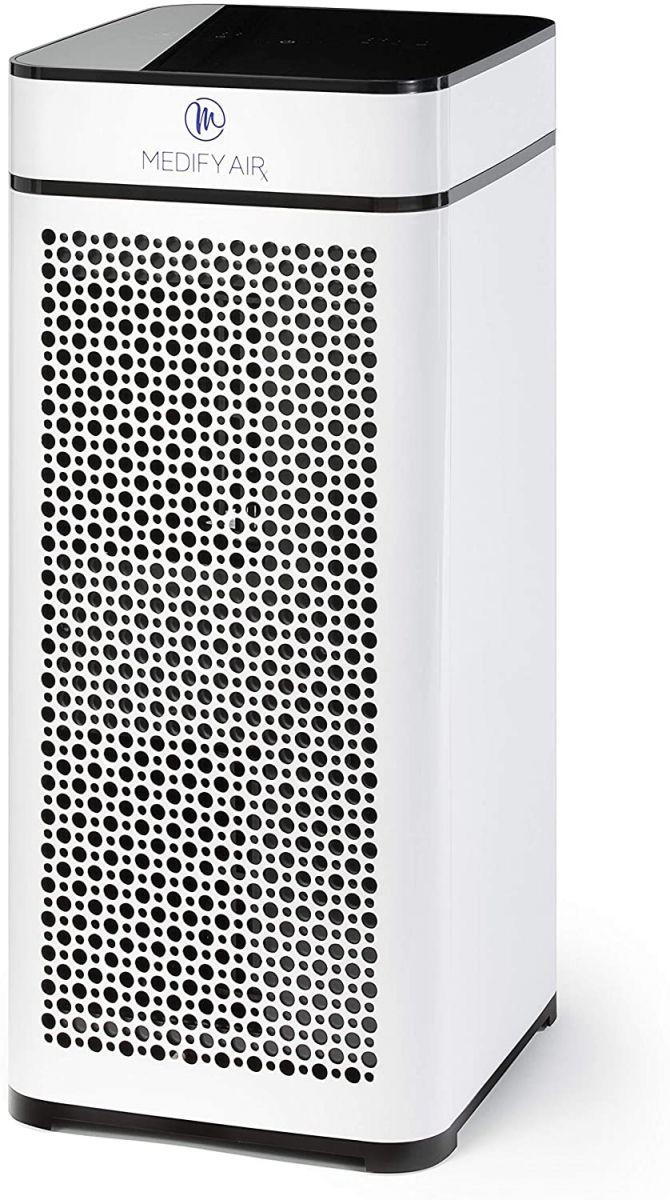We hope this finds you and your families in good health and we encourage continued safety measures during the lingering challenges and safety concerns due to COVID. Thank you to all our patients, team members and vendors for being understanding and patient during these difficult times. While many are aware of our new procedures and systems we have in place, we would like to share a series of blog posts describing the products and technologies we have added since the beginning of COVID in March.
Medify Air HEPA 13 Air purifiers
When choosing air purifiers, it's important to look at filtration ability and how well they cycle air through the air purifier. Noise, cost, maintenance cost, size, and any ozone byproduct from ionizers are also things to consider. After evaluating over 30 models, we chose the Medify Air MA-40 and MA-25 units. They have HEPA 13 filters and can cycle a large volume of air for their size. Their reasonable cost allowed us to place more units per square foot compared to other brands so we could experience even better filtration flow rate of the air in our office.

Other things to consider: Be aware of any ozone byproducts released by some ionizers. We don't turn on the ionizer on the MA-40s. We already use ozone free ionizers in our HVAC system and our foggers. In considering units with UV lights, please note these lights need replacement and can be very expensive. Particles may need a 2-3 second exposure time to these UV lights in order to be killed so make sure the unit slows the air flow enough for proper exposure time. Regarding particle size, the hardest particle to filter is 0.3 microns according to a NASA study. That's why HEPA filters are rated based on 0.3 micron size. Particles smaller than 0.3 microns become easier to filter out due to the way the particles move through the air. Please reference the NASA study here for details.
Also to consider, is that while the coronavirus is 0.1 microns, it'll usually be suspended in a droplet...it's not likely someone will cough out a single virus particle. Instead, that virus will be in a little spit droplet for example, which is much larger than 0.1 microns.
